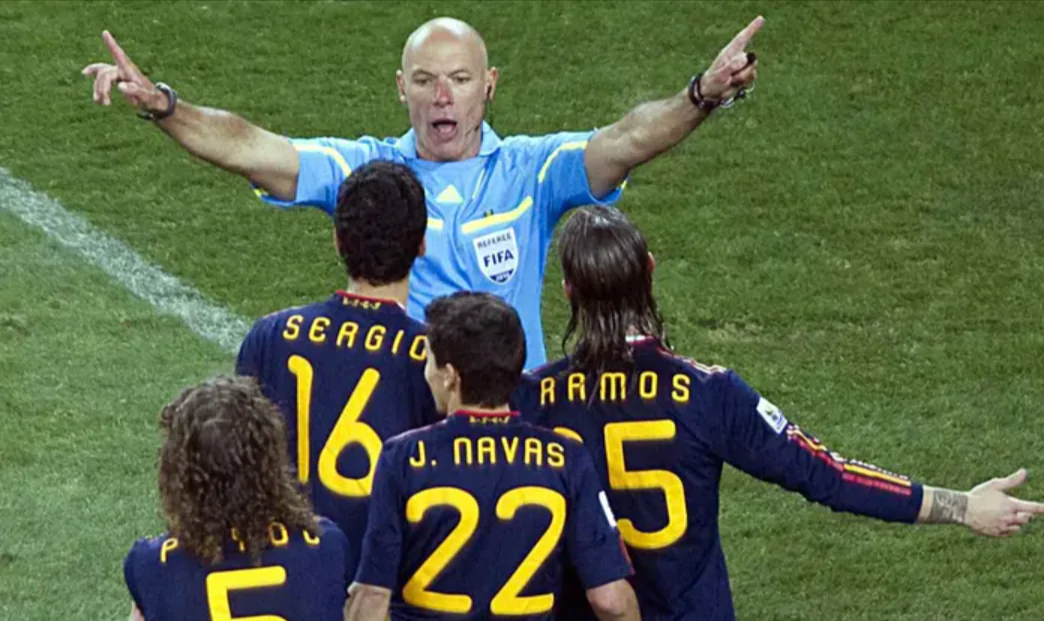The biggest controversies in Champions League history

The UEFA Champions League is the most prestigious club competition in the world, and it is known for its drama and excitement. Over the years, there have been many controversial moments, and here are some of the biggest of all time:
The refereeing in the 2009 Champions League final
The 2009 Champions League final was one of the most controversial matches in history. Barcelona faced Manchester United in the final, and the match was tied 1-1 after extra time. In the penalty shootout, Barcelona won 3-1. However, many people believe that the referee, Howard Webb, made several mistakes in the match, including not awarding Manchester United a penalty for a handball by Barcelona’s Eric Abidal.
In the 67th minute, Barcelona’s Abidal handled the ball in the penalty area. However, Webb did not award Manchester United a penalty, and Barcelona went on to win the match. Many people believe that Webb’s decision cost Manchester United the match, and it is one of the most controversial moments in Champions League history.
The use of goal-line technology
Goal-line technology was first used in the Champions League in the 2014-15 season. However, it was not without controversy. In the first match of the season, Chelsea faced Bayern Munich, and Chelsea scored a goal that appeared to have crossed the line. However, the goal was not given, and Bayern Munich won the match. Chelsea manager Jose Mourinho was furious, and he accused the referee of being biased against his team.
The goal in question came in the 87th minute of the match. Chelsea’s Didier Drogba headed the ball towards the goal, and it appeared to have crossed the line. However, the referee did not give the goal, and Bayern Munich went on to win the match 2-1.
The use of goal-line technology has been criticized by some people, who believe that it is not necessary. However, the technology has also been praised by others, who believe that it has helped to make the game fairer.
The doping scandal involving Real Madrid
In 2016, it was revealed that several Real Madrid players had tested positive for doping. The players were all cleared of wrongdoing, but the scandal cast a shadow over Real Madrid’s success in the Champions League.
The doping scandal involved several Real Madrid players, including Cristiano Ronaldo, Karim Benzema, and Sergio Ramos. The players were all accused of using performance-enhancing drugs. However, the players were all cleared of wrongdoing by the Spanish Anti-Doping Agency.
The doping scandal was a major blow to Real Madrid’s reputation. The club had been one of the most successful teams in the Champions League in recent years, but the scandal raised questions about the legitimacy of their success.
Grab your Champions League Tickets.
The financial fair play rules
The financial fair play rules were introduced in 2011 in an attempt to prevent clubs from spending more money than they earn. However, the rules have been criticized for being unfair to smaller clubs. In 2014, Manchester City and Paris Saint-Germain were both fined for breaking the financial fair play rules.
The financial fair play rules have been criticized by some people, who believe that they are unfair to smaller clubs. The rules make it difficult for smaller clubs to compete with the big clubs, and they can prevent smaller clubs from signing the best players.
The Super League proposal
In 2021, a group of 12 European clubs, including Real Madrid, Barcelona, and Manchester United, announced plans to form a new competition called the Super League. The proposal was met with widespread criticism, and the clubs eventually withdrew from the competition.
The Super League proposal was seen by many people as an attempt by the big clubs to break away from UEFA and form their own competition. The proposal was also seen as a way for the big clubs to make more money.
The withdrawal of the clubs from the Super League was a victory for UEFA. However, the proposal has raised questions about the future of the Champions League. It is possible that other clubs will try to form their own competition in the future.




